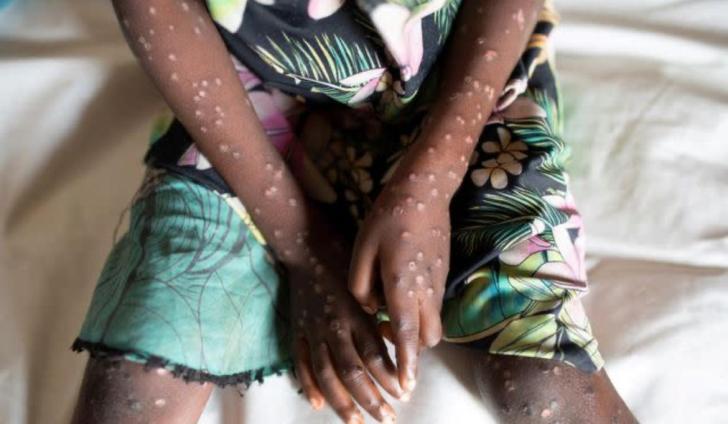News / Local
Zimbabwe ups Mpox surveillance
02 Oct 2024 at 06:53hrs |
0 Views

The Zimbabwean government has ramped up surveillance efforts at the country's borders in response to the rising threat of Mpox, formerly known as monkeypox, which has recently been declared a public health emergency. This decision follows the World Health Organization's declaration in August, prompted by an outbreak in the Democratic Republic of Congo (DRC) that has since spread to at least 13 other African nations.
According to the Africa Centres for Disease Control (CDC), cases of Mpox across the continent have surged by 160%, with reported deaths rising by 19% compared to the same period in 2023. The Africa CDC has confirmed 2,863 cases and 517 deaths across Africa, with suspected cases exceeding 17,000.
Aspect Maunganidze, the Secretary for Health and Child Care, stated that while Zimbabwe has not recorded any cases of Mpox, the ministry is taking proactive measures to prevent an outbreak. "We have put in place robust surveillance systems at all entry points and health facilities to detect and respond to any Mpox cases promptly. Our response strategy is guided by the need to protect the public, ensure early detection, and prevent further spread," Maunganidze emphasized.
The government is confident that the measures implemented will help minimize the impact of Mpox in the country. In Matabeleland North province, where the influx of tourists is significant, local health officials are already taking additional precautions. Fungai Musinami, the district medical officer for Hwange, noted, "We have increased awareness at ports of entry, and our staff are screening all travelers coming into the country with temperature checks."
To further combat the spread of Mpox, Musinami mentioned that key health messages have been disseminated to communities to enhance awareness and encourage adherence to recommended infection prevention practices.
Mpox can spread between individuals primarily through close contact, and it may also transfer from contaminated objects and surfaces. Common symptoms of the viral disease include a rash lasting two to four weeks, which may begin with or follow fever, headaches, muscle aches, back pain, low energy, and swollen lymph nodes.
As Zimbabwe prepares to combat this public health threat, the government remains committed to protecting its citizens and ensuring that adequate measures are in place to safeguard public health.
According to the Africa Centres for Disease Control (CDC), cases of Mpox across the continent have surged by 160%, with reported deaths rising by 19% compared to the same period in 2023. The Africa CDC has confirmed 2,863 cases and 517 deaths across Africa, with suspected cases exceeding 17,000.
Aspect Maunganidze, the Secretary for Health and Child Care, stated that while Zimbabwe has not recorded any cases of Mpox, the ministry is taking proactive measures to prevent an outbreak. "We have put in place robust surveillance systems at all entry points and health facilities to detect and respond to any Mpox cases promptly. Our response strategy is guided by the need to protect the public, ensure early detection, and prevent further spread," Maunganidze emphasized.
To further combat the spread of Mpox, Musinami mentioned that key health messages have been disseminated to communities to enhance awareness and encourage adherence to recommended infection prevention practices.
Mpox can spread between individuals primarily through close contact, and it may also transfer from contaminated objects and surfaces. Common symptoms of the viral disease include a rash lasting two to four weeks, which may begin with or follow fever, headaches, muscle aches, back pain, low energy, and swollen lymph nodes.
As Zimbabwe prepares to combat this public health threat, the government remains committed to protecting its citizens and ensuring that adequate measures are in place to safeguard public health.
Source - newsday
Join the discussion
Loading comments…





































